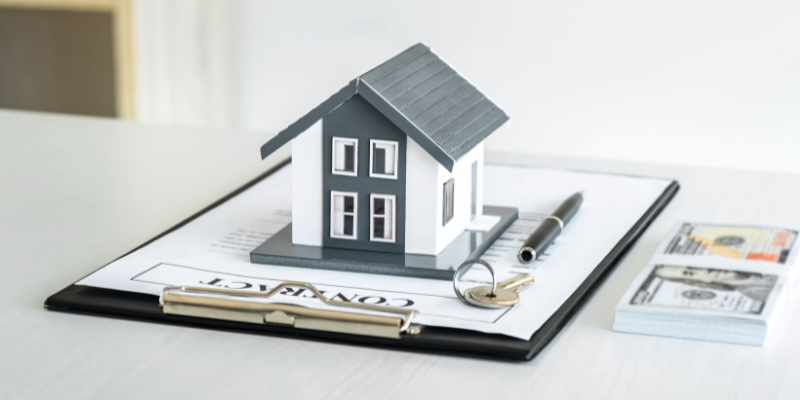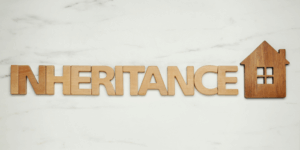
Selling a house or property with code violations can be a challenging process, but it’s not impossible. Understanding what code violations are, their implications, and the available options can empower homeowners to navigate this situation effectively.
In this article, we will delve into the world of code violations, their significance, and the choices property owners have when selling a property with such violations. Whether you’re dealing with plumbing deficiencies, electrical problems, or other common code enforcement violations, this guide will provide you with valuable insights.
In Today’s Article:
- What is a Housing Code Violation
- Why Building Codes Matter
- How the Code Violation Works
- Common Code Enforcement Violations
- What Will Happen if There is a Code Violation?
- Three Options to Consider When Selling a House with Code Violation
- FAQ
What is a Housing Code Violation?
In order to establish standardized regulations for residential construction, many cities and municipalities adopt a comprehensive set of building codes. These codes, known as the International Residential Code (IRC), are developed and regularly updated by the International Code Council (ICC).
The IRC serves as a universal framework that outlines the minimum requirements and standards for safe and habitable residential structures across various jurisdictions.
Before delving into the intricacies of selling a house with code violations, it’s crucial to comprehend what these violations entail. Building code violations are breaches of the regulations and standards set forth by local authorities to ensure the safety, habitability, and quality of residential properties.
These codes cover various aspects, including electrical systems, plumbing, heating, ventilation, and fire safety measures.

TX Cash Home Buyers Gives Multiple Offer Options!
Unlock the potential of your home with our multiple offer options. Discover what you qualify for an make informed decisions with confidence.
Why Building Codes Matter:
Building codes exist to protect the occupants of a property and maintain community standards and property values. They ensure that homes meet specific safety and health requirements, thereby minimizing the risk of accidents, injuries, and property damage.
Compliance with building codes is vital to maintain the integrity and value of the property, providing a safe living environment for occupants.
How the Code Violation Works:
To better understand the consequences of code violations, let’s explore the typical process of code enforcement. When a violation is identified, whether through routine code inspections or in response to a complaint, a local code enforcement officer will issue a violation notice to the property owner, specifying the nature of the violation and a timeframe for rectification.
Failure to address the violation within the given timeframe can result in fines, legal consequences, and potential barriers when selling the property.
Common Code Enforcement Violations
When it comes to code enforcement violations in residential properties, certain issues tend to arise more frequently than others. Let’s take a closer look at some of the most common code violations property owners may encounter:

Missing or Inoperable Smoke and Carbon Monoxide Detectors:
Smoke and carbon monoxide detectors are essential safety devices in any home. These detectors provide early warnings in the event of a fire or the presence of harmful gases, ensuring the well-being of occupants.
A code violation related to smoke detectors and carbon monoxide detectors can occur when these devices are missing, non-functional, or improperly installed. It is crucial to address these violations promptly to comply with safety regulations and protect the occupants of the property.
Plumbing Deficiencies:
A plumbing code violation can encompass a wide range of issues, from leaky pipes and faulty fixtures to inadequate water pressure or improper drainage. These deficiencies can lead to water damage, mold growth, and health hazards.
Common plumbing violations include leaking faucets, clogged drains, improper pipe materials, and insufficient hot water supply. It’s important to rectify these plumbing issues to ensure a safe and functional water supply system within the property.
Electrical Problems:
Electrical code violations pose significant safety risks and can result in electrical fires or electrocution hazards. Common electrical issues include exposed wiring, overloaded circuits, faulty outlets, electrical panel or switches, and improper installation of electrical fixtures.
Addressing these violations promptly is crucial to prevent potential injuries and ensure the property meets electrical safety standards.
Other Articles You Might Enjoy:
- Sell Your Houston Foundation-Problem Home As-Is
- Houston Homeowner’s Guide to Selling a Flood Zone Property
- How Texas Soil Can Damage Your Home’s Foundation
- Messy Title Problems in Texas: What Every Homeowner Needs to Know
- Selling a Problem Property? Here’s the Fastest Way
Inadequate or Inoperable Permanent Heating:
Adequate heating is essential for maintaining a comfortable living environment, especially in colder climates. Code violations related to permanent heating may include non-functional or improperly installed heating systems, lack of insulation, or inefficient heat distribution within the property.
It’s important to address these violations to provide a safe and comfortable living space for occupants while adhering to local building or housing codes.
Insufficient Ventilation in Bathrooms:
Proper ventilation in bathrooms is necessary to prevent excessive moisture buildup, which can lead to mold growth, deteriorating indoor air quality, and structural damage.
Ventilation code violations can occur when bathrooms lack exhaust fans, have inadequate ventilation systems, or when existing systems are malfunctioning or improperly installed. Rectifying these violations ensures a healthier environment and reduces the risk of damage to the property.
Rodent, Pest, or Other Infestations:
Code violations may also arise due to rodent or pest infestations, which can compromise the habitability and safety of a property. Such infestations can occur due to inadequate pest prevention measures, cracks or gaps in the building structure, or improper waste management.
Addressing these violations typically involves implementing pest control measures, sealing entry points, and maintaining proper sanitation practices to ensure the property remains free from infestations.
By addressing these common code enforcement violations, a property owner can not only ensure compliance with regulations but also create a safer and more desirable living environment.
It’s essential to consult with professionals, such as licensed contractors or inspectors, to assess the severity of the violations and determine the most appropriate remedial measures.
What Will Happen if There is a Code Violation?

When a code violation exists, the consequences can vary depending on local regulations and the severity of the violation. The local building authority may impose fines, issue work orders, or even order the property to be vacated until the issues are resolved.
It’s crucial for a property owner to be proactive in addressing housing code violations to avoid escalating penalties and legal complications. In addition to fines, work orders, and potential property vacating, code violations can also lead to delays in the sale process and difficulty in securing financing for potential buyers.
These repercussions highlight the importance of promptly addressing housing codes to ensure a smooth selling process and mitigate any negative impacts on the property’s marketability.
Property owners should be proactive in resolving code violations to avoid potential financial and legal complications, protecting both their interests and the value of the property.
Does the Homeowner Need to Fix Code Violations in Order to Sell?
The decision to rectify housing code violations before selling is influenced by various factors. While some violations may need immediate attention for safety or legal reasons, others may be less critical.
Understanding the implications and considering the potential impact on the sale can help homeowners make an informed decision.
Do Sellers Need to Disclose Code Violations to Buyers?
The disclosure of code violations to potential buyers is a complex and legally nuanced topic. The laws regarding disclosure vary by jurisdiction, and homeowners should consult with local real estate professionals or legal experts to determine their obligations.
Proper disclosure can foster transparency and trust in the home sale process.
Pros and Cons of Selling a Home with a Code Violation:
Selling a property with code violations presents both advantages and challenges. By weighing the pros and cons, homeowners can assess the most suitable course of action for their specific situation.
Factors such as financial considerations, time constraints, and the condition of the property will influence the decision-making process.
Three Options to Consider When Selling a House with Code Violation

When selling a house with common violations, homeowners have several options to consider. Let’s explore these three common approaches in more detail:
Fix the Code Violations:
One option is to address and rectify the issues so the property can be brought to the current code before putting the house on the market.
This involves hiring licensed contractors or professionals to make the necessary repairs or improvements to bring the property into compliance with local building codes.
By resolving the issues, homeowners can enhance the marketability and value of their property, attract a wider pool of potential buyers, and potentially negotiate a higher selling price.
Offer the Buyer a Favorable Price:
Another option is to negotiate with potential buyers by offering them a credit or reducing the selling price of the house to account for the cost of addressing the safety issues. This approach acknowledges the existence of the violations and allows the buyer to take on the responsibility of resolving them after the purchase.
Offering a credit or a lower price can make the property more appealing to buyers who are willing to invest the time and effort into addressing the code violations themselves.

TX Cash Home Buyers Gives Multiple Offer Options!
Unlock the potential of your home with our multiple offer options. Discover what you qualify for and make informed decisions with confidence.
Sell Your House “As Is” to a Cash Buyer:
For homeowners who prefer a more expedited sale or do not have the financial resources or time to address the code violations, selling the house “as is” to a cash buyer is an option worth considering. Cash buyers, such as real estate investors or companies specializing in buying properties in any condition, are often willing to purchase homes with code violations without requiring the homeowner to make any major repairs or updates.
While selling “as is” may result in a lower sale price, it offers a convenient solution for homeowners who prioritize a quick and hassle-free sale.
Each of these options has its own advantages and considerations. Homeowners should carefully evaluate their specific circumstances, financial capabilities, and timeline requirements to determine the most suitable approach for selling their house with code violations.
Conclusion
Selling a house with code violations may seem daunting, but armed with knowledge and a clear understanding of available options, homeowners can navigate this process successfully. By addressing code violations, making informed choices, and considering the pros and cons, homeowners can optimize their chances of selling their property in a manner that meets their needs and legal obligations.
Remember, it’s essential to consult with local professionals, such as real estate agents, attorneys, or contractors experienced in code compliance and remodeling projects, to ensure compliance with local regulations and to receive personalized advice for your situation.
FAQ
Q: What are codes of the house?
A: Codes of the house refer to the regulations and standards set by local authorities to ensure the safety, habitability, and quality of residential properties. These codes cover various aspects such as electrical systems, plumbing, heating, ventilation, and fire safety measures. Compliance with these housing codes, is essential for maintaining the integrity and value of the property and providing a safe living environment for occupants.
Q: What does local code enforcement do?
A: A local code enforcement officer is responsible for monitoring and enforcing compliance with the building codes and regulations within a specific jurisdiction. Code enforcement officials conduct inspections, respond to complaints, and issue notices to property owners when violations are identified. Their role is to ensure that properties meet the required standards to safeguard public health, safety, and welfare.
Q: Can you sell a house with code violations in Texas?
A: Yes, it is possible to sell a house with code violations in Texas. However, it’s important to note that Texas, like other states, has specific regulations regarding code violations and their disclosure during the sale process. Homeowners are generally required to disclose known code violations to potential buyers. It’s recommended to consult with local real estate professionals or legal experts to understand the specific requirements and implications of selling a house with code violations in Texas.
Disclaimer:
The content provided on this blog is for informational purposes only. We are not attorneys or tax professionals. For personalized legal or tax advice, please consult with a qualified professional.
Written by Lisa Martinez, Founder of TX Cash Home Buyers

About The Company
TX Cash Home Buyers helps Texas homeowners sell quickly and simply — even in tough situations like repairs, inherited homes, or financial stress. Founded by Lisa Martinez, we’re known for our local experience, fair offers, and commitment to guiding sellers through off-market sales with clarity and care.




